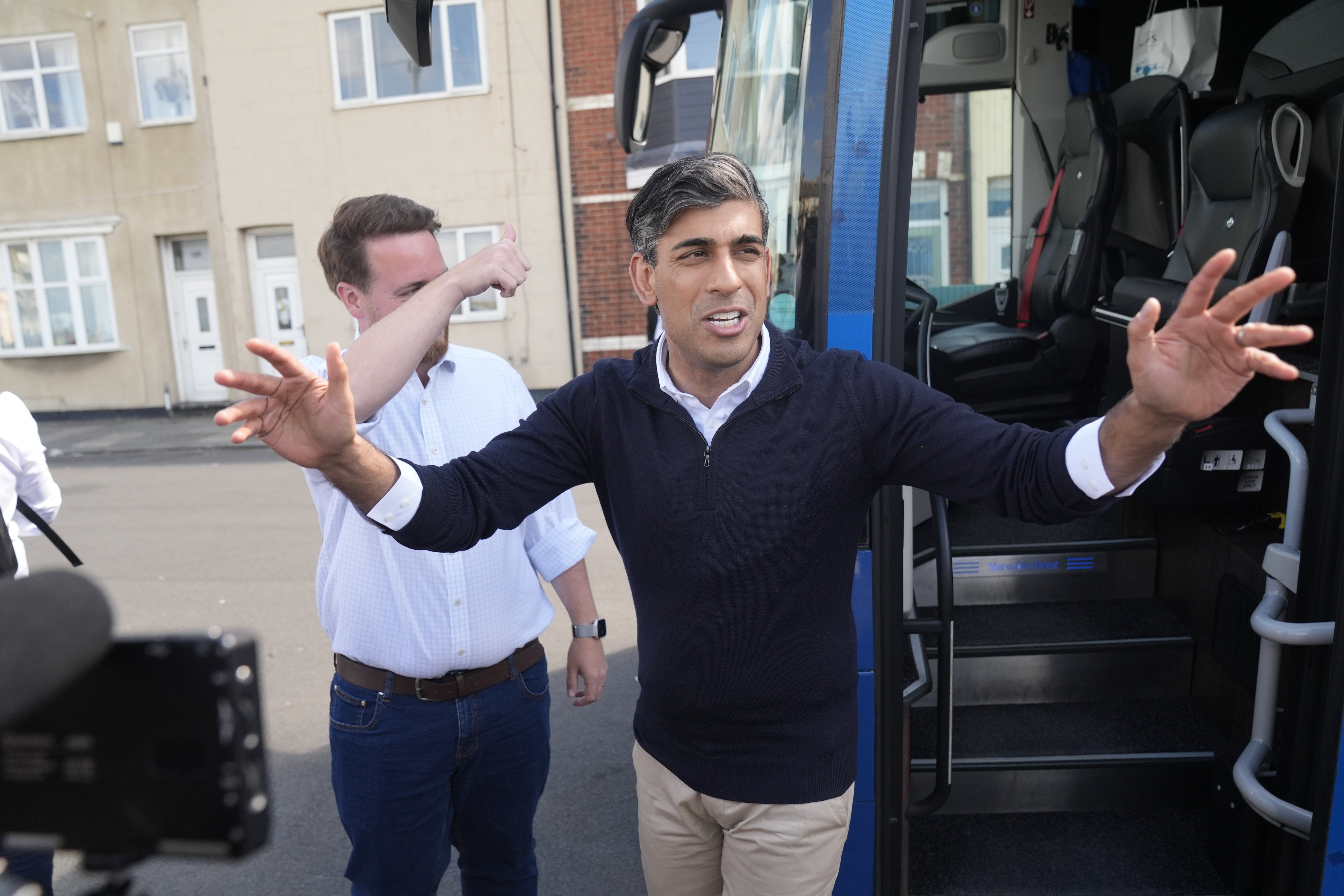Failed Tory project fear drove voters to Labour and Reform, poll reveals
New poll reveals Tory project fear failed but postal votes may give Sunak hope
Your support helps us to tell the story
From reproductive rights to climate change to Big Tech, The Independent is on the ground when the story is developing. Whether it's investigating the financials of Elon Musk's pro-Trump PAC or producing our latest documentary, 'The A Word', which shines a light on the American women fighting for reproductive rights, we know how important it is to parse out the facts from the messaging.
At such a critical moment in US history, we need reporters on the ground. Your donation allows us to keep sending journalists to speak to both sides of the story.
The Independent is trusted by Americans across the entire political spectrum. And unlike many other quality news outlets, we choose not to lock Americans out of our reporting and analysis with paywalls. We believe quality journalism should be available to everyone, paid for by those who can afford it.
Your support makes all the difference.The Conservatives’ “project fear” tactic deployed to scare voters with the threat of a Labour “supermajority” has spectacularly backfired, new polling has revealed.
According to findings from Techne UK for The Independent, twice as many people are “more likely” to vote Labour (26 per cent) than more likely to vote Conservative (13 per cent) as a result of the warning used by Rishi Sunak and senior Conservatives about handing Sir Keir Starmer too much power.
The tactic was also used to try to prevent Tory voters defecting to Reform, but almost one in 10 (9 per cent) said the warning had in fact made them “more likely” to vote for Nigel Farage’s party.
The survey’s findings appear to confirm warnings by former chancellor George Osborne – whose own project fear tactics were blamed for defeat in the EU Brexit referendum – that Mr Sunak and the Tories were “fighting the wrong campaign”.
He had warned they were too focused on Reform and letting Labour “run rampant” in so-called blue wall safe seats.
But the polling by Techne has offered the Tories a slither of hope with postal voting.
While just under a quarter of those voting have said they will vote by post, the results break much more favourably for the Conservatives and Reform UK.
Considering only the vote by post, the Conservatives would get 30 per cent, Labour 33 per cent, Reform UK 26 per cent and the Lib Dems 6 per cent.

Pollster Lord Robert Hayward, a Tory peer, said the intelligence he has heard on postal votes suggests they are closer than the polls have suggested over the past few weeks.
He said: “While not as close as the sample in [the Techne poll], it is fair to say that what I have heard so far on postal votes is that it is much better than the national polls have suggested [for the Conservatives].”
He added: “This election is going to be a real test for the polling industry, especially the new MRP polls, in terms of accuracy, given the extreme results they have suggested over the campaign.”
While postal votes are important and can sway marginal seats, most voters (58 per cent) plan to wait until polling day on 4 July to make their final decision.
But the rest of the survey paints a much more depressing picture for the Tories.
In particular, major scandals that have hit the election campaign have had a much greater impact on the Tory vote than on other parties.
The top issue to anger voters was Mr Sunak leaving the D-Day commemorations early, with 8 per cent saying it changed their vote.
This was followed by the betting scandal involving members of the prime minister’s inner circle that has consumed the Tories in the final days of the campaign, which saw 6 per cent say it changed their vote.
In contrast, only 2 per cent were affected by Nigel Farage’s blaming of the West for the invasion of Ukraine.
The Tories, led by home secretary James Cleverly and Mr Sunak, used Mr Farage’s comments as a major campaign issue, but apparently to little effect.
Only 1 per cent changed their vote as a result of the anger over the way Sir Keir Starmer treated Labour Party veteran Diane Abbott, while nobody changed their vote as a result of Lib Dem leader Sir Ed Davey’s stunts including falling into water.
The bad feeling around the Tory campaign and the party is also underlined in the poll, which shows that more than four in 10 (42 per cent) planning to vote for them will be holding their noses and see them as “the least worst option”.
Reform UK had the lowest rate of “least worst option” on 28 per cent and were chosen as the joint-highest best option for government along with Labour, with both parties achieving that rating with 57 per cent of those who intend to vote for them.
Only one in 10 (9 per cent) plan to vote tactically as a means of getting the government out, while 42 per cent will vote for their favourite option.
The anger with the democratic process and political parties saw 14 per cent admit they will not vote, in protest at all the parties, while another 9 per cent plan not to vote because they are “not interested”.

Join our commenting forum
Join thought-provoking conversations, follow other Independent readers and see their replies
Comments